The US TV giant's £22bn bid for Sky tops a £19bn offer from Rupert Murdoch's 21st Century Fox.
Get Started for FREE
Sign up with Facebook Sign up with X
I don't have a Facebook or a X account

 Your new post is loading... Your new post is loading...
 Your new post is loading... Your new post is loading...
General Electric has decided to test the world’s largest offshore wind turbines at a test facility in England in a major vote of confidence for the UK’s burgeoning wind power industry.
Graham Watson's insight:
Even the Telegraph's gone a little but Guardian - with the news that the UK is going to be the test site for the world's largest offshore wind turbines. This would signal another technological advance and lower the cost of offshore wind power further, no doubt.
Shares in bookmakers tumble on reports the maximum stake on betting terminals will be cut to £2.
Graham Watson's insight:
Worries about a dramatic reduction in the maximum stake going into fixed odds betting terminals has spooked investors, and seen bookmakers' share prices fall.
The move is touted as a way to reduce the negative externalities associated with problem gambling.
National Grid says the 72-hour streak is the longest since the 1880s.
Graham Watson's insight:
Has the BBC reached 'peak Guardian'? It reports that the National Grid hasn't generated any power from coal for the last three days.
Net earnings jump almost 73% in the first quarter as revenues from internet advertising climb.
Graham Watson's insight:
This might be used as a good starting point for consideration of profit. What is it? What enables firms to make such large profits? And is profit a good indicator of economic efficiency?
Employment contracts without a minimum number of guaranteed hours increased to 1.8m
Graham Watson's insight:
One of the hot topics of the past couple of years - the gig economy. This Guardian article highlights that there are now nearly 2 million workers on zero hours contracts in the UK, an increase of 100,000 in a year.
This sort of development has certainly changed the way in which UK labour markets function.
A new bill aims to ringfence payments to small contractors and stop the practice of ‘subbie-bashing’
Graham Watson's insight:
This could easily be a macroeconomic 'scoop' but the underlying issue is one of regulation, with the competition authorities looking to rein in the monopsony power of large construction firms, such as the former infrastructure giant, Carillion.
In the past, they've been able to delay payment to small sub-contractors and this harm their cashflow. But the government is attempting to limit this ability.
It's not all doom and gloom for UK retailers, some are managing to buck the trend.
Graham Watson's insight:
Let's counter the high street gloom: the BBC highlights six companies that have adapted to the increased demand for experiential shopping, and are currently doing well.
Facebook, Google and co pose a problem to society, not least because of data misuse and extreme content. Only some level of regulation will do, writes Liberal Democrat leader Vince Cable
Graham Watson's insight:
His Holiness, Vince Cable, argues that the tech giants need to be broken up, arguing that their size is a threat to welfare. He argues that these companies represent new forms of monopoly, and are able to hide behind the fact that ostensibly they offer 'free' services.
He argues that they should be broken up, and that people should be given more property rights over their own data - an application of an essential feature of market economies. I can foresee problems with this - it will be difficult for people to 'value' their data and thus, they won't be able to allocate resources accordingly, by selling aspects of it at the appropriate price, for example.
All in all, a classic microeconomic dilemma.
The US President criticises producer group Opec and says high oil prices "will not be accepted".
Graham Watson's insight:
The economic titan that is President Trump has issued a critical tweet, highlighting OPEC's attempts to prop up oil prices above what he considers to be the 'fair' level.
Of course, as the President of a nation that has ample domestic oil, he's easily able to say that. However, for OPEC members like Libya and Venezuela who need high oil prices to be profitable and even contemplate balancing their budget, this is unlikely to come as welcome news.
Drivers say Green Tomato, Blacklane and A2B did not provide holiday pay or minimum wage
Graham Watson's insight:
More workers' rights issues in the taxi market sector - with companies other than Uber.
How can you create public transport in the jungle without polluting it? The isolated Achuar peoples of Ecuador have created an ingenious solution.
Graham Watson's insight:
An innovative approach to school transport in the Amazonian rainforest - solar powered school transport.
Shire shares rise after Allergan said it was considering making an offer for maker of ADHD medicine Adderall
Graham Watson's insight:
Merger activity in the pharmaceutical sector, with Allergan and Takeda apparently in the running to buy pharma giant, Shire. IT's unsurprising that this is the case; a lot of these companies have substantial cash piles waiting to be spent. |
EC concerned £300m deal with music-recognition app could give Apple data on users and rival streaming services to aid poaching
Graham Watson's insight:
Apple's purchase of music recognition app Shazam has attracted the eye of European regulators concerned that it could give them a significant anti-competitive advantage in the market and allow them to poach customers from rival services, reducing the effective level of competition in the market and, in the longer term perhaps driving up prices.
Boston Tea Party, which has 21 branches, will not sell coffee in disposable cups from June.
Graham Watson's insight:
The first mover in getting rid of disposable cups is independent chain, Boston Tea Party, who will stop selling coffee in disposable cup in June.
It will be interesting to see if anyone else follows suit. And if any of the high street majors do, how quickly their rivals follow suit.
Brent crude hits its highest level in more than three years as production cuts reduce stockpiles.
Graham Watson's insight:
More energy, more demand and supply. This time the price of oil has risen because of fears of tougher sanctions against Iran.
The meat industry, a major contributor to CO2 emissions and deforestation, is facing competition.
Graham Watson's insight:
A fascinating article about the environmental implications of meat production, and the high levels of carbon associated with cattle farming, in particular.
However, is lab-grown meat a substitute for 'meat'? And what does it cost? And are there unintended consequences?
My local retailer, efficient and amiable, has decided to shut his business. This is why
Graham Watson's insight:
Another article about monopsony power - not monopoly as the headline writes for the economically illiterate. You wait for ages for a monopsony article and then a number of them come along at the same time.
This one looks at how a local newsagent has been driven out of business, largely as a result of the inefficiency of the distribution network of a monopsony wholesaler. It also touches on the gig economy - one of the reasons for such sloppy service has been the nature of the couriers that the wholesaler has used - self-employed contract drivers.
A private equity firm is hoping to tap the fierce competition between energy and telecoms services by merging a pair of online price comparison sites to cover energy, broadband, TV and mobile providers.
Graham Watson's insight:
Horizontal integration in the price comparison sector, with a private equity firm hoping to combine Energy Helpline and UK Web Media, to create a giant price comparator. A lovely, modern example of horizontal integration.
The UK government has proposed a ban on plastic straws, drink stirrers and cotton buds. The FT highlights the crackdown on plastic waste in this animated explainer
Graham Watson's insight:
A brief FT clip looking at the proposal to ban plastic straws, drink stirrers and cotton buds, as part of a wider commitment to outlawing avoidable plastic waste by 2042.
Quite how that is going to be measured, I don't know, but the FT puts the measure in the context of other such moves, such as the plastic bag tax.
Low stocks and high demand for straw have combined to push prices to historic highs.
Graham Watson's insight:
Really nice microeconomic starter for 10, elementary D&S regarding the market for straw and a nice link to the interconnected nature of markets, and perhaps to costs too.
This might lead to all sorts of discussion of the consequences of this.
The move follows recent increases announced by energy giants EDF Energy and British Gas.
Graham Watson's insight:
And still they come: the drip, drip of energy companies raising their prices, trying to imply that there's no form of collusion whatsoever between them.
This time, it is Scottish Power's turn to increase prices - after EDF and British Gas. Of course, the companies will all say that price increases represent changing cost conditions alone. But as good economists, you might have other explanations of firm behaviour in this oligopolistic market.
Unions alarmed by suggestion that deep structural reforms are required to adjust to changing nature of work
Graham Watson's insight:
And yet, at the same time, the World Bank is seeking to reduce labour market restrictions, and increase labour market flexibility.
That said, a leading union representative, Peter Bakvis, representative for the International Trade Union Confederation, has argued that "the proposals were harmful, retrograde and out of synch with the shared-prosperity agenda put forward by the bank’s president Jim Yong Kim."
Farmers are turning to robots to plant seedlings and pick produce because of human worker shortages.
Graham Watson's insight:
Here's the clip to accompany the robo-farmer. White asparagus all round!
Farmers are working on robotic solutions due to a shortage of human workers to pick difficult crops.
Graham Watson's insight:
Automation is coming, and this BBC article investigates the extent to which they can even be applied to agriculture. In this case, an asparagus-picking robot has been developed which can, apparently, do the work of 70 workers. Wowsers. |





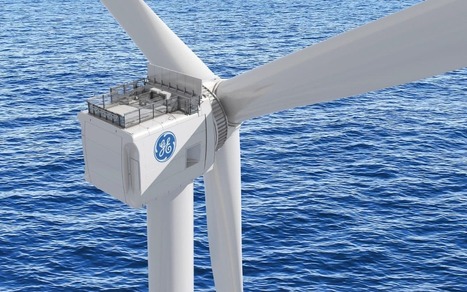

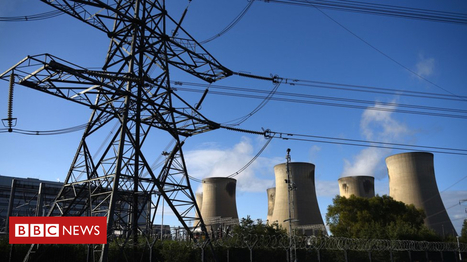
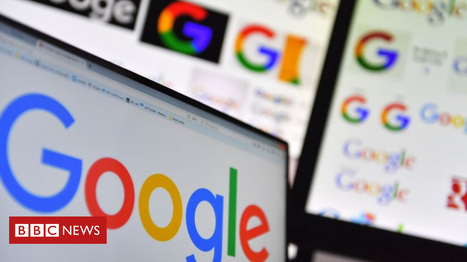



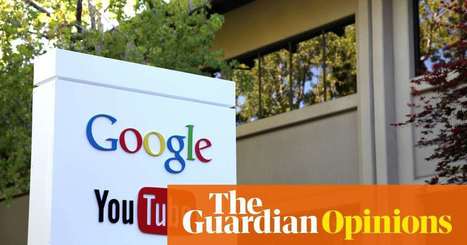










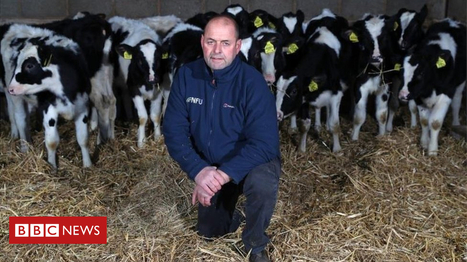
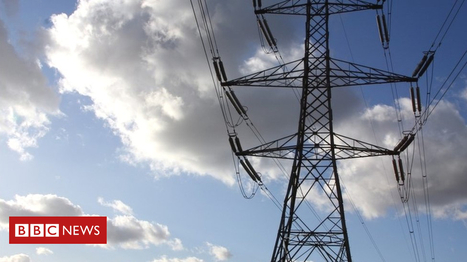
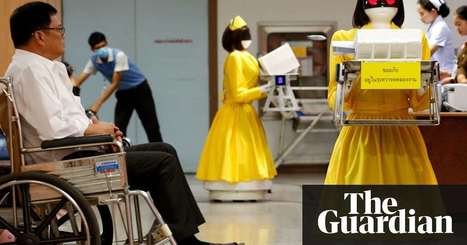







The bidding war for Sky has hotted up with the news that Comcast a prepared to offer £22bn for the company, a significant mark-up on what 21st Century Fox are offering.
Expect a response from Sky - and are we in danger of witnessing the 'winner's curse'?